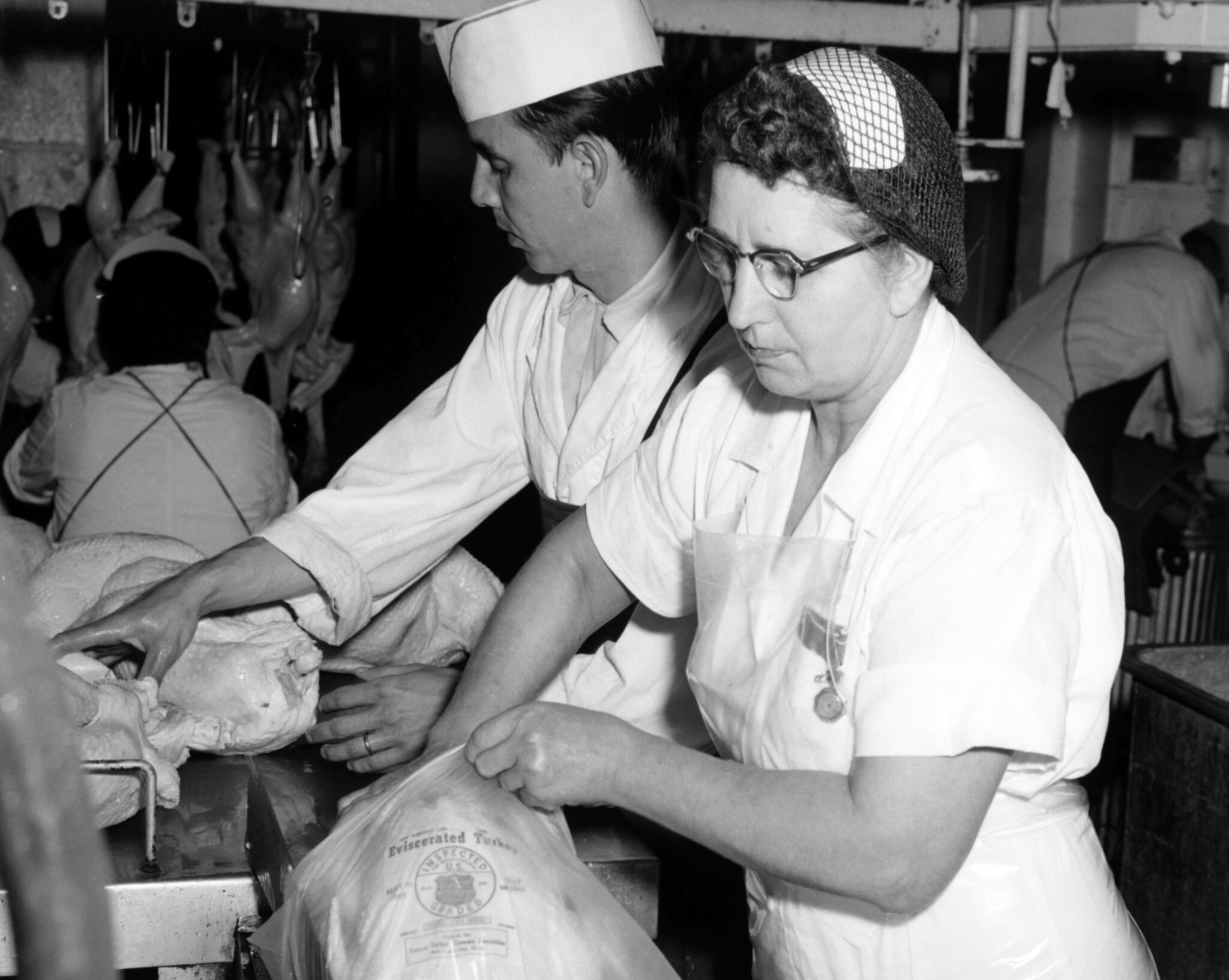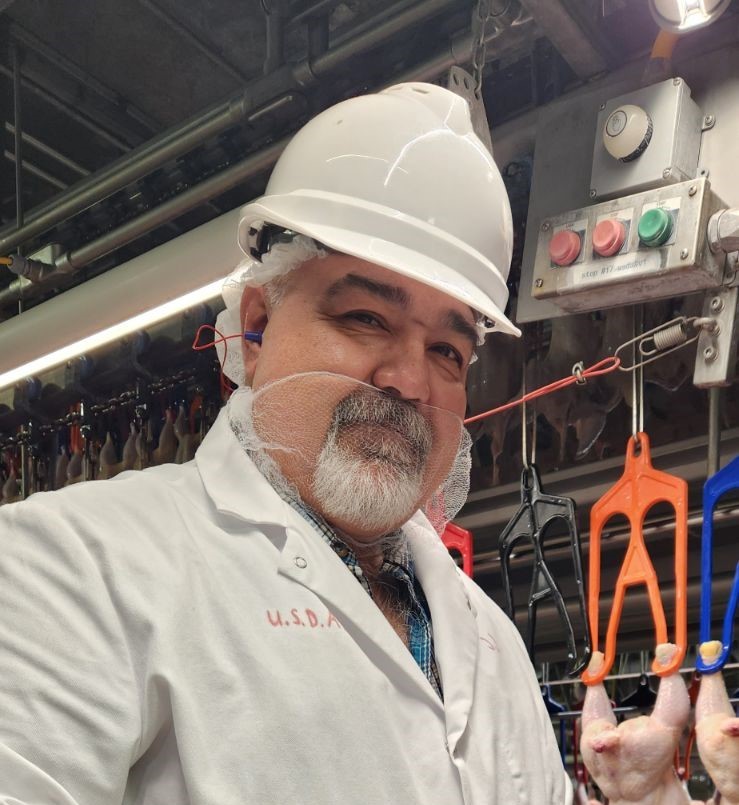
Dr. Teresa Scott Hoggard: Emergency Manager and Civil War Historian
By Pat Cuadros, OPACE, and Dr. April Haynes, OFO
Preparedness and Response Coordinator Dr. Teresa Scott Hoggard joined FSIS nearly three years ago. She’s made an impact as a member of the Significant Incident Preparedness and Response Staff (SIPRS) in the Office of Management. She coordinates the organization and management of all aspects of emergencies, including preparedness, response, mitigation and recovery. Dr. Scott Hoggard says her work is vital because she “makes sure FSIS is prepared to respond to emergencies and disasters by coordinating response activities ensuring employee safety.” In addition to her bachelor’s and master’s degrees, she holds a doctorate in public policy.
At SIPRS, Dr. Scott Hoggard is a backup administrator for the FSIS Incident Management System (FIMS), which monitors incidents that impact regulated establishments and FSIS employees. FIMS, she explains, allows SIPRS to maintain situational awareness about incidents happening at FSIS-regulated establishments. SIPRS gathers information from points of contact throughout FSIS and develops a situation report to brief leadership.
She also makes a difference by supporting public health and says, “I am proud of my role in protecting the American public and our FSIS employees.” Dr. Scott Hoggard derives satisfaction in developing exercises to test FSIS’ ability to maintain its mission-essential functions. She enjoys providing emergency management committee training to new program area representatives.
Dr. Scott Hoggard says the work is not about recognition but the ability to make a difference to someone impacted by an emergency or disaster. She loves helping people and finds that listening to a person’s concerns and trying to understand their situation is helpful.
Dr. Scott Hoggard says has been fortunate to complete the Federal Emergency Management Agency Master Exercise Practitioner Program. As part of her certification, she developed a foodborne illness outbreak exercise that FSIS can use to refine foodborne illness response and coordination. Her participation in the program has empowered her to use her practical experience toward her development goals, saying, “Everything is a steppingstone and will help further my growth.”
Overcoming Obstacles
Dr. Scott Hoggard brings resiliency and determination to emergency management. When she was a toddler, a choking accident resulted in loss of control of her mouth and tongue and weakness in her left hand. Because her speech was affected, she spent years in speech therapy. She says the accident impacted her whole life, and while growing up, she experienced discrimination. “I always had to work harder to make myself appear equal to everyone else.”
Her interest in emergency management began as a volunteer emergency medical technician (EMT) and while training to become a volunteer firefighter. Witnessing the impact of Hurricane Katrina fueled her desire to make an impact in helping people. When Dr. Scott Hoggard encountered doubt from others, she persisted in exceeding others’ perceptions of her limitations, and she remained undeterred from her goals. She was determined to become the “first relief EMT in the field with a speech impediment.” She attributes her success to having faith in herself, having a strong will and setting goals.
Moving to FSIS
Dr. Scott Hoggard earned a bachelor’s degree in 2011 and a master’s degree in 2015 in emergency management from the University of Richmond and the University of Maryland, respectively. Following graduation, she began her career as the deputy emergency management coordinator, which included the duties of regional planner, for the City of Alexandria, Virginia. In her role, Dr. Scott Hoggard wrote all plans, policies and procedures on all aspects of emergency disaster management. She was the first to conduct a threat and hazard risk assessment for the city and coordinate resources during natural disasters. Wanting to help develop policy in emergency management, she enrolled at Walden University in 2016 to pursue a doctorate in public policy, earning her degree in 2020.
Encouraged by her father, a retired Secret Service employee, she pursued an opportunity to translate her skills to the federal government. In 2021, she began at SIPRS, using her previous experience to support the goals and mission of the team. Her “boots on the ground” perspective helps shape FSIS’ response to emergencies and disasters. Dr. Scott Hoggard finds that her prior experience allows her to see the bigger picture. “When you’re a local emergency manager, you’re responsible for anything that happens in your locality. While FSIS emergency managers do not act as onsite responders, it is helpful that I can still look at everything with the lens of a local emergency manager.”
FSIS Core Values
Dr. Scott Hoggard says that she associates with the FSIS Collaborative Core Value the most because SIPRS accomplishes its goals through team effort, whether within the group or with other program areas. Her team is derived from individuals with various backgrounds, and everyone brings their own perspectives, improving emergency responses. She finds that good communication is the key to successful collaboration.
Dr. Scott Hoggard’s supervisor says she “has a love of learning and is always striving to expand her knowledge and apply the information to her work as an emergency manager. She is a team player who is always willing to help her colleagues in FSIS and USDA on developing exercises to help identify areas to improve FSIS preparedness activities.”
In 2022, Dr. Scott Hoggard began collaborating with USDA’s Office of Homeland Security (OHS) to develop the first national-level continuity of operations (COOP) exercise since the COVID-19 pandemic. She was responsible for writing tasks that must be completed in the exercise. Dr. Scott Hoggard explains that these scenarios will differ each year and could involve the relocation of headquarters operations to “ensure continued delivery of FSIS’ mission essential functions during an incident impacting the nation.” She enjoyed working with OHS because she learned how to develop and design COOP exercises and provided input to OHS. She is proud of this milestone and received excellent feedback from OHS.
Outside of Work
Dr. Scott Hoggard and her husband, Chris, share their home with their dogs, Allie and Phoebe, and three cats, Faith, Gracie and Cottontail. Their new home also came with a large pond containing eight koi and many goldfish and she enjoys learning to care for them. She enjoys crocheting blankets and has donated hats and scarves to those experiencing homelessness. Dr. Scott Hoggard is a self-taught pianist, who creatively uses her left hand to play on her historic Wurlitzer Grand piano.
An avid Civil War artillery reenactor, she volunteers at Gettysburg National Military Park, teaching visitors about artillery regiments and the role of women in the war. Dr. Scott Hoggard particularly admires flag bearer Kady Brownell of the First Rhode Island Infantry and Dr. Mary Walker, the only woman to receive the Congressional Medal of Honor. She feels deeply about the number of lives lost and the battlefield’s history.

Pictured, Dr. Teresa Scott Hoggard at Virginia Department of Emergency Management.
Photo by Helen Poad.

Pictured, Dr. Teresa Scott Hoggard and family dog, Allie, at home.
Photo by Dr. Scott Hoggard.


